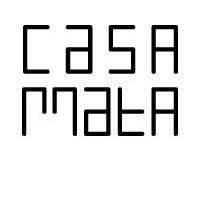August 15, 2011
Ai Weiwei recounts his experiences during 81 days' detention
 This weekend the recently released, 54-year-old Chinese artist Ai Weiwei recounted parts of his experiences during 81 days' detention which ended on June 22. His arrest was part of the largest crackdown on dissidents and intellectuals in many years, that was initiated in the beginning of 2011, notably against people who expressed a will to take their forms of protest from the internet to the streets. Officially proclaimed by authorities to be a tax case, also Ai Weiwei's detention is widely understood as a retaliation for political activism. Ai has been one of the most explicit critics of the Chinese Communist Party, and has among other things claimed that government corruption played a role in the deaths of schoolchildren in the 2008 Sichuan earthquake due to the poor construction of schools. In 2010, he created an Internet audio project in which volunteers read the names of nearly 5,000 children who were killed during the earthquake, and also made an art installation composed of thousands of children’s backpacks, in response to this. Ai has also been an active supporter of Liu Xiaobo, the political prisoner who was awarded the Nobel Peace Prize in 2010.
This weekend the recently released, 54-year-old Chinese artist Ai Weiwei recounted parts of his experiences during 81 days' detention which ended on June 22. His arrest was part of the largest crackdown on dissidents and intellectuals in many years, that was initiated in the beginning of 2011, notably against people who expressed a will to take their forms of protest from the internet to the streets. Officially proclaimed by authorities to be a tax case, also Ai Weiwei's detention is widely understood as a retaliation for political activism. Ai has been one of the most explicit critics of the Chinese Communist Party, and has among other things claimed that government corruption played a role in the deaths of schoolchildren in the 2008 Sichuan earthquake due to the poor construction of schools. In 2010, he created an Internet audio project in which volunteers read the names of nearly 5,000 children who were killed during the earthquake, and also made an art installation composed of thousands of children’s backpacks, in response to this. Ai has also been an active supporter of Liu Xiaobo, the political prisoner who was awarded the Nobel Peace Prize in 2010.
Ai's explicit opinions in two specific cases have been seen as the incitement Shanghai officials used to first tear down his studio (which was planned to become an education center and art residency), and then later detain him, members of his family and associates. The first case was that of Yang Jia, a Beijing resident who killed six policemen in a Shanghai police station after being arrested and beaten for riding an unlicensed bicycle, and who was later executed. The second was the case of Feng Zhenghu, about whom Ai Weiwei made a documentary. Zhenghu is a lawyer and activist who spent over three months in Tokyo’s Narita Airport after Shanghai officials denied him entry.
“Performance art” is Ai's term for his ongoing conflict with government officials over the Communist Party’s authoritarian rule. This definition of performance took a sinisterly unpremeditated form during a visit to an art exhibition in Munich in 2009, during which he had to be rushed to the hospital, where surgeons drained a pool of blood from his brain. According to doctors he would have died without this emergency surgery. This happened one month after he had been assaulted by officers in his hotel room, in the middle of the night, as he was preparing to testify at the trial of a fellow dissident in Chengdu.
Well aware that his risk of further prosecution depends on his public behavior, on Twitter Ai last week turned the attention to other colleagues currently imprisoned, and who face greater danger than him because of their lesser public stature: "If you don't speak for Wang Lihong, and don't speak for Ran Yunfei, you are not just a person who will not stand out for fairness and justice; you do not have self-respect," he stated. Wang awaits trial to start within weeks for "creating a disturbance" after demonstrating in support of bloggers that have been accused of slander after they wrote about a suspicious death. Ran, a high profile blogger, was detained in March and later formally charged with "inciting subversion of state power".
Four of Ai Weiwei's associates were also detained for two months and released shortly after him: "Because of the connection with me, they were illegally detained. Liu Zhenggang, Hu Mingfen, Wen Tao and Zhang Jinsong innocently suffered immense mental devastation and physical torment."
On August 12 Ai Weiwei described that during the three months he was detained and interrogated more than 50 times in total, he was kept in a tiny room, watched 24 hours a day by shifts of two uniformed military policemen who were never more than 30 inches from his side, sometimes just four inches away, and the same was the case as he slept, showered and used the bathroom. “It is designed as a kind of mental torture, and it works well,” he explained.
The quotes in this article are taken from The New York times, August 12 and The Guardian, August 9.










